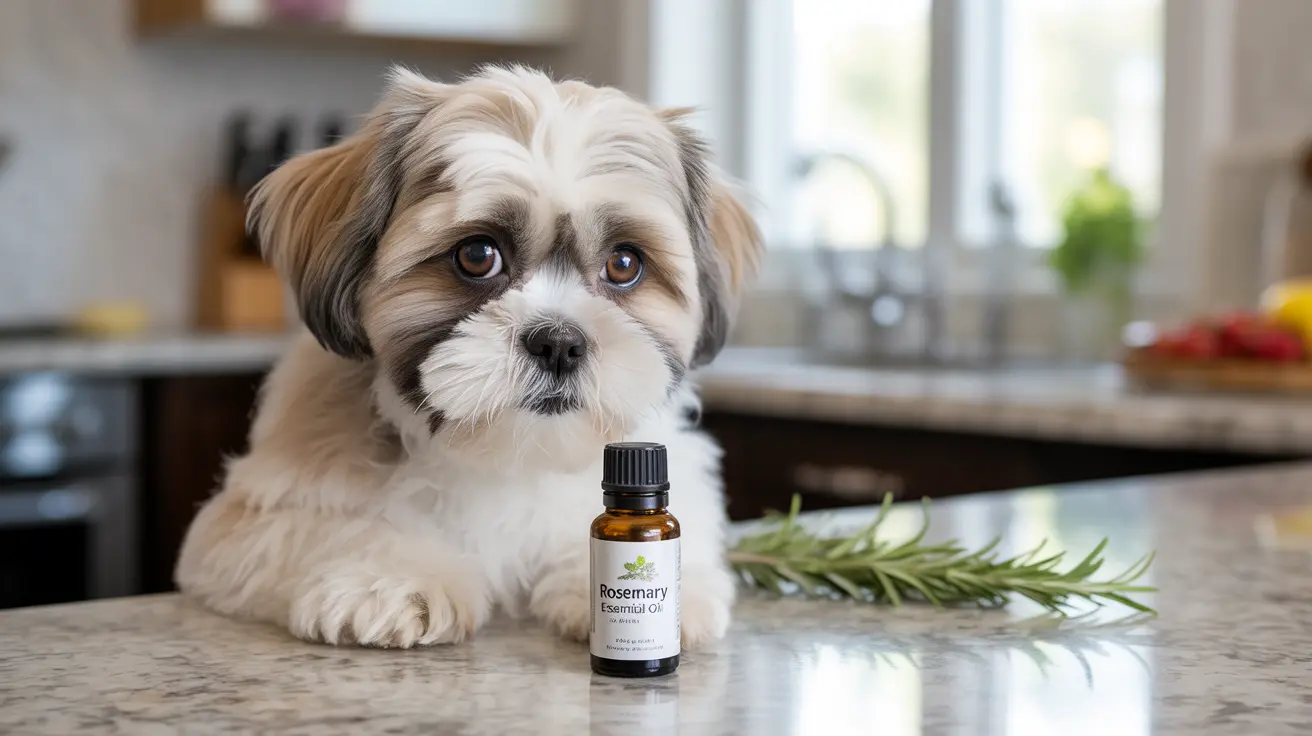Understanding Rosemary and Dogs: The Basics
When it comes to natural remedies for dogs, rosemary often comes up in conversation. However, there's significant confusion about whether rosemary oil is safe for dogs. The answer isn't a simple yes or no – it depends on the form of rosemary being used and how it's administered.
While fresh and dried rosemary herbs are generally safe for dogs in small amounts, rosemary essential oil requires much more caution. Let's explore the crucial differences and what pet owners need to know to keep their furry friends safe.
Different Forms of Rosemary and Their Safety Levels
Fresh and Dried Rosemary
Fresh and dried rosemary herbs are considered non-toxic to dogs by the ASPCA. When used in small amounts as a food flavoring or supplement, these natural forms typically pose minimal risk to healthy dogs. A general safe guideline is no more than one teaspoon of fresh herbs per day for medium-sized dogs.
Rosemary Extract
Rosemary extract, commonly found in commercial dog foods as a natural preservative, has been classified as "Generally Recognized as Safe" (GRAS) by the FDA. This form is typically well-tolerated when used in appropriate amounts in pet food products.
Rosemary Essential Oil
Rosemary essential oil is highly concentrated and poses the greatest risk to dogs. This form should never be applied directly to a dog's skin or given orally without veterinary supervision. Even diffusing rosemary oil can be problematic due to dogs' sensitive respiratory systems.
Potential Benefits of Rosemary for Dogs
When used appropriately, rosemary can offer several benefits for dogs:
- Natural antioxidant properties
- Antimicrobial effects
- Potential cognitive support
- Natural food preservation
- Mild digestive support
Risks and Warning Signs
Watch for these symptoms of rosemary toxicity in dogs:
- Vomiting or diarrhea
- Lethargy
- Excessive drooling
- Loss of coordination
- Breathing difficulties
- Seizures (in severe cases)
Safe Usage Guidelines
To safely incorporate rosemary in your dog's life:
- Always consult your veterinarian first
- Use only fresh or dried herbs in food
- Avoid essential oils unless specifically directed by a veterinarian
- Store all forms of rosemary securely out of reach
- Monitor your dog for any adverse reactions
Frequently Asked Questions
Is fresh or dried rosemary safe for dogs to eat, and how much can I give them?
Fresh or dried rosemary is generally safe for dogs in small amounts. Stick to no more than one teaspoon per day for medium-sized dogs, and always introduce it gradually into their diet.
What are the health benefits of rosemary for dogs when included in their diet?
Rosemary offers antioxidant and antimicrobial properties, may support cognitive function, and can aid in digestion. It's also used as a natural preservative in many commercial dog foods.
Why is rosemary essential oil considered dangerous for dogs, and what symptoms indicate toxicity?
Rosemary essential oil is highly concentrated and can be toxic to dogs. Signs of toxicity include vomiting, lethargy, drooling, loss of coordination, and in severe cases, seizures. The oil can be absorbed through the skin or inhaled, making it particularly dangerous.
Can rosemary oil be used safely to repel fleas and ticks on dogs?
While rosemary has natural insect-repelling properties, essential oil should not be used as a flea and tick treatment. It's too risky and not as effective as veterinary-approved preventatives.
Should dogs with seizures or special health conditions avoid rosemary entirely?
Yes, dogs with a history of seizures, epilepsy, or other neurological conditions should avoid rosemary in all forms, particularly essential oils. Always consult with your veterinarian about safe alternatives for dogs with special health conditions.
Conclusion
While rosemary in its natural herb form can be safe and potentially beneficial for dogs, rosemary oil poses significant risks and should be approached with extreme caution. Always prioritize your pet's safety by consulting with a veterinarian before introducing any new substances into their routine, and stick to proven, veterinary-approved products for their health and wellness needs.






